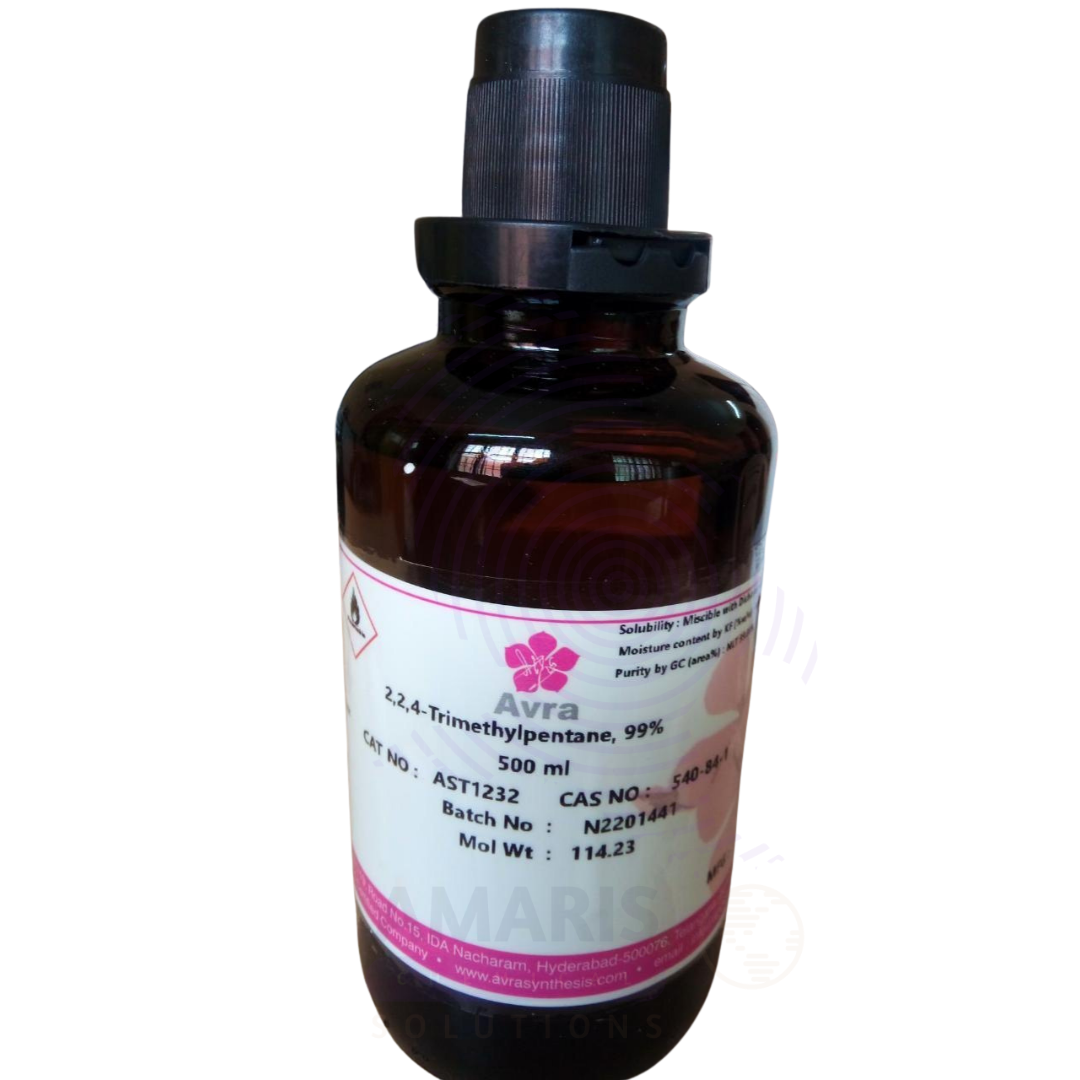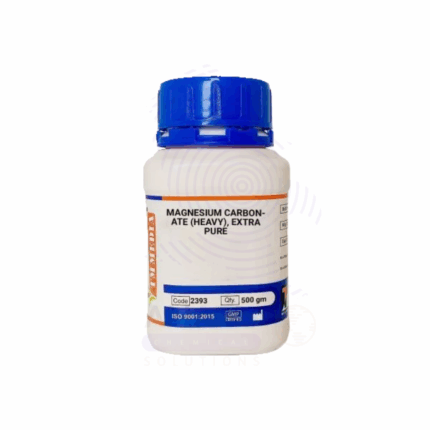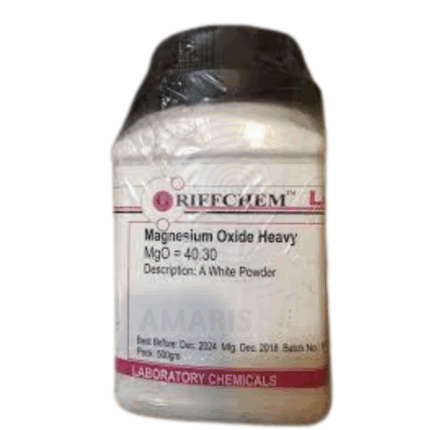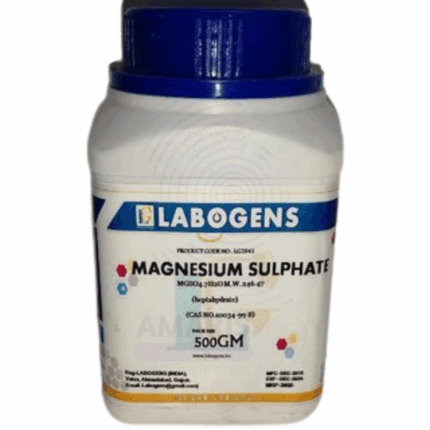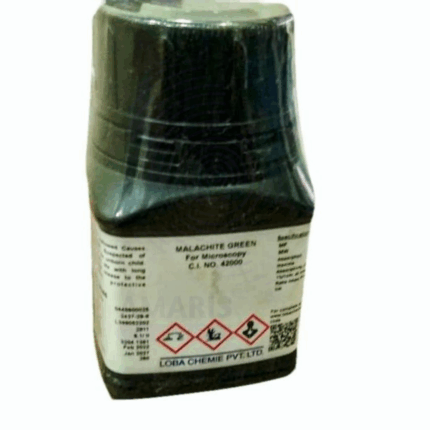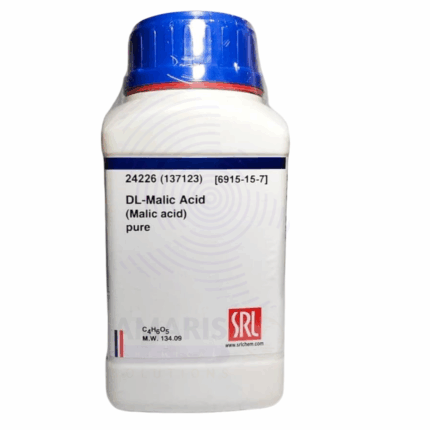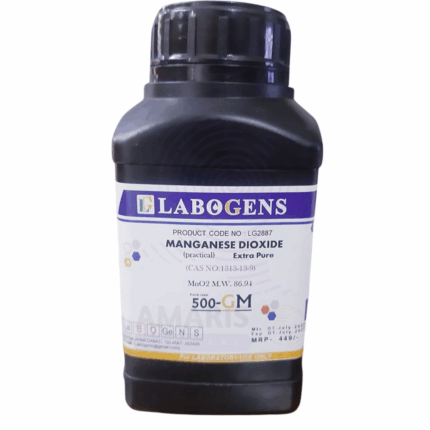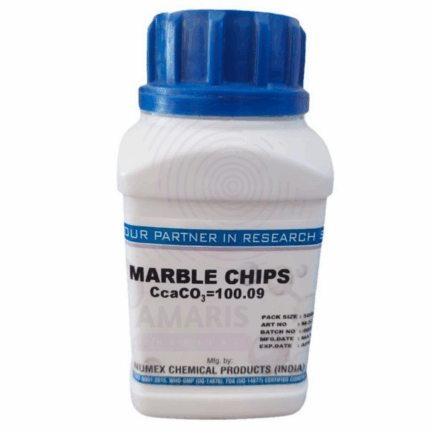
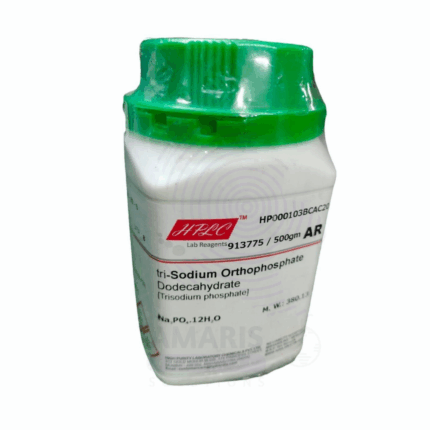
Trimethylpentane HPLC Grade Extra Pure
Trimethylpentane HPLC Grade Extra Pure is a high-purity isomer of octane primarily used as a non-polar solvent in high-performance liquid chromatography. With low UV absorbance and excellent volatility, it is ideal for analytical applications requiring solvent precision and cleanliness. In fuel and petrochemical research, it serves as a reference hydrocarbon and standard for combustion studies. Its high flammability demands careful handling, grounding during transfer, and use in controlled laboratory environments.
Trimethylpentane HPLC Grade Extra Pure
PRIMARY USES
Analytical Reagent & Laboratory Applications
- Used as a high-purity solvent in HPLC (High-Performance Liquid Chromatography)
- Acts as a mobile phase component for non-polar compound separation
- Ideal for UV detection systems due to its high volatility and low UV absorbance
- Used in method validation, solvent gradient optimization, and standardization
- Functions as a diluent or sample preparation solvent in petrochemical labs
Calibration and Reference Standards
- Employed as a reference compound for octane rating in fuel analysis
- Used as a retention time marker in chromatographic systems
SECONDARY USES
Petrochemical and Fuel Research (lab scale)
- Acts as a model hydrocarbon in research on combustion and volatility
- Used in the development of gasoline formulations and engine testing studies
- Basic Identification Attributes
Chemical Name: 2,2,4-Trimethylpentane
CAS Number: 540-84-1
HS Code: 2901.10.90
Molecular Formula: C₈H₁₈
Synonyms: Isooctane, Iso-octane, TMP, 2,2,4-Trimethylpentane - Physical & Chemical Properties
Physical State: Liquid
Color & Odor: Clear, colorless with mild hydrocarbon odor
Boiling Point: ~99.3 °C
Melting Point: −107.4 °C
Density/Specific Gravity: ~0.692 g/cm³ at 20 °C
Solubility: Insoluble in water, miscible with most organic solvents
Vapor Pressure: ~52 mmHg at 20 °C
Flash Point: −12 °C (closed cup)
Autoignition Temperature: 415 °C
Viscosity: Very low (mobile liquid)
Refractive Index: ~1.391 at 20 °C - Safety & Hazard Attributes
Hazard Class (GHS Classification):
– Flammable liquid (Category 2)
– Skin and eye irritant (mild)
– May cause drowsiness or dizziness (Category 3)
NFPA Ratings:
– Health: 1
– Flammability: 3
– Reactivity: 0
Exposure Limits:
– OSHA PEL: 500 ppm
– ACGIH TLV: 300 ppm
Reactivity:
– Stable under normal conditions
– Reacts with strong oxidizing agents - Storage & Handling Attributes
Storage Conditions:
– Store in tightly sealed containers in a cool, flammable chemical storage area
– Keep away from ignition sources and electrostatic discharge
Incompatible Materials:
– Strong oxidizers, acids, halogens
Container Type:
– Use approved containers for flammable solvents (metal or solvent-safe HDPE)
Shelf Life & Expiration Date:
– Typically stable for 2–3 years under recommended storage conditions
Special Handling Requirements:
– Use in well-ventilated areas or fume hoods
– Avoid inhalation of vapors
– Ground equipment during transfer - Regulatory & Compliance Attributes
Regulatory Status:
– Listed under REACH, TSCA, and OSHA
– Controlled as a flammable volatile organic compound
Transportation Restrictions:
– UN Number: UN1262
– Shipping Name: Isooctane
– Hazard Class: 3 (Flammable Liquid)
– Packing Group: II
Waste Disposal Method:
– Dispose of as hazardous waste according to local regulations - Environmental & Health Impact
Ecotoxicity:
– Harmful to aquatic organisms
Persistence in Environment:
– Volatile, degrades in air under photochemical conditions
Carcinogenicity/Mutagenicity:
– Not classified as carcinogenic
Biodegradability:
– Biodegradable under aerobic conditions
SAFETY PRECAUTIONS
Personal Protective Equipment (PPE):
– Wear nitrile gloves and splash-resistant goggles
– Use flame-resistant lab coat
– Ensure adequate ventilation or wear an organic vapor respirator
Handling:
– Keep away from heat, sparks, and open flame
– Avoid breathing vapors or prolonged skin contact
– Wash hands after handling
Storage:
– Store in a flammable solvent cabinet
– Keep container tightly closed and properly labeled
– Protect from direct sunlight and incompatible chemicals
FIRST AID MEASURES
Inhalation:
– Move to fresh air immediately
– Seek medical attention if symptoms like dizziness or headache occur
Skin Contact:
– Wash thoroughly with soap and water
– Remove contaminated clothing
– Seek medical advice if irritation persists
Eye Contact:
– Rinse with water for at least 15 minutes
– Consult a physician if discomfort continues
Ingestion:
– Do not induce vomiting
– Rinse mouth and get immediate medical help
FIRE FIGHTING MEASURES
Flammability:
– Highly flammable liquid and vapor
Extinguishing Media:
– Use dry chemical, foam, or CO₂
– Do not use water jet directly
Hazardous Combustion Products:
– Emits carbon monoxide and carbon dioxide
Firefighter Protection:
– Wear full protective gear and SCBA
– Cool containers with water spray to prevent explosion


 Preservatives(food)
Preservatives(food) Flavor Enhancers
Flavor Enhancers Acidulants
Acidulants Sweeteners
Sweeteners Antioxidants
Antioxidants Colorants(food)
Colorants(food) Nutraceutical Ingredients (food)
Nutraceutical Ingredients (food) Nutrient Supplements
Nutrient Supplements Emulsifiers
Emulsifiers
 Collectors
Collectors Dust Suppressants
Dust Suppressants Explosives and Blasting Agents
Explosives and Blasting Agents Flocculants and Coagulants
Flocculants and Coagulants Frothers
Frothers Leaching Agents
Leaching Agents pH Modifiers
pH Modifiers Precious Metal Extraction Agents
Precious Metal Extraction Agents
 Antioxidants(plastic)
Antioxidants(plastic) Colorants (Pigments, Dyes)
Colorants (Pigments, Dyes) Fillers and Reinforcements
Fillers and Reinforcements Flame Retardants
Flame Retardants Monomers
Monomers Plasticizers
Plasticizers Polymerization Initiators
Polymerization Initiators Stabilizers (UV, Heat)
Stabilizers (UV, Heat)
 Antifoaming Agents
Antifoaming Agents Chelating Agents
Chelating Agents Coagulants and Flocculants
Coagulants and Flocculants Corrosion Inhibitors
Corrosion Inhibitors Disinfectants and Biocides
Disinfectants and Biocides Oxidizing Agents
Oxidizing Agents pH Adjusters
pH Adjusters Scale Inhibitors( water)
Scale Inhibitors( water)
 Antioxidants(cosmetic)
Antioxidants(cosmetic) Emollients
Emollients Fragrances and Essential Oils
Fragrances and Essential Oils Humectants
Humectants Preservatives
Preservatives Surfactants(cosmetic)
Surfactants(cosmetic) Thickeners
Thickeners UV Filters
UV Filters
 Fertilizers
Fertilizers Soil Conditioners
Soil Conditioners Plant Growth Regulators
Plant Growth Regulators Animal Feed Additives
Animal Feed Additives Biostimulants
Biostimulants Pesticides (Herbicides, Insecticides, Fungicides)
Pesticides (Herbicides, Insecticides, Fungicides)
 Active Pharmaceutical Ingredients (APIs)
Active Pharmaceutical Ingredients (APIs) Excipients
Excipients Solvents(pharmaceutical)
Solvents(pharmaceutical) Antibiotics
Antibiotics Antiseptics and Disinfectants
Antiseptics and Disinfectants Vaccine Adjuvants
Vaccine Adjuvants Nutraceutical Ingredients (pharmaceutical)
Nutraceutical Ingredients (pharmaceutical) Analgesics & Antipyretics
Analgesics & Antipyretics
 Analytical Reagents
Analytical Reagents Solvents(lab)
Solvents(lab) Chromatography Chemicals
Chromatography Chemicals Spectroscopy Reagents
Spectroscopy Reagents microbiology-and-cell-culture-reagents
microbiology-and-cell-culture-reagents Molecular Biology Reagents
Molecular Biology Reagents Biochemical Reagents
Biochemical Reagents Inorganic and Organic Standards
Inorganic and Organic Standards Laboratory Safety Chemicals
Laboratory Safety Chemicals Specialty Laboratory Chemicals(Special Laboratory Equipment)
Specialty Laboratory Chemicals(Special Laboratory Equipment)
 Demulsifiers
Demulsifiers Hydraulic Fracturing Fluids
Hydraulic Fracturing Fluids Scale Inhibitors(oil)
Scale Inhibitors(oil) Surfactants(oil)
Surfactants(oil) Drilling Fluids
Drilling Fluids
 Dyes and Pigments
Dyes and Pigments Bleaching Agents
Bleaching Agents Softening Agents
Softening Agents Finishing Agents
Finishing Agents Antistatic Agents
Antistatic Agents
 Admixtures
Admixtures Waterproofing Agents
Waterproofing Agents Sealants and Adhesives
Sealants and Adhesives Curing Compounds
Curing Compounds Concrete Repair Chemicals
Concrete Repair Chemicals Anti-Corrosion Coatings
Anti-Corrosion Coatings
 Surfactants(cleaning)
Surfactants(cleaning) Builders
Builders Enzymes
Enzymes Solvents (Cleaning)
Solvents (Cleaning) Fragrances
Fragrances
 Electronic Chemicals
Electronic Chemicals Catalysts
Catalysts Lubricants
Lubricants Photographic Chemicals
Photographic Chemicals Refrigerants
Refrigerants Automotive chemicals
Automotive chemicals Pyrotechnic Chemicals
Pyrotechnic Chemicals
 Biodegradable Surfactants
Biodegradable Surfactants Bio-based Solvents
Bio-based Solvents Renewable Polymers
Renewable Polymers Carbon Capture Chemicals
Carbon Capture Chemicals Wastewater Treatment Chemicals
Wastewater Treatment Chemicals
 Pigments
Pigments Solvents(paint)
Solvents(paint) Specialty Coatings
Specialty Coatings Binders/Resins
Binders/Resins Additives
Additives Driers
Driers Anti-Corrosion Agents
Anti-Corrosion Agents Functional Coatings
Functional Coatings Application-Specific Coatings
Application-Specific Coatings
 Fresh Herbs
Fresh Herbs Ground Spices
Ground Spices Whole Spices
Whole Spices Spice Blends
Spice Blends Dried Herbs
Dried Herbs
 Leavening Agents
Leavening Agents Dough Conditioners
Dough Conditioners Flour Treatments
Flour Treatments Fat Replacers
Fat Replacers Decoratives
Decoratives Preservatives(baking)
Preservatives(baking)
 Plasticizers & Softeners
Plasticizers & Softeners Reinforcing Agents
Reinforcing Agents Adhesion Promoters
Adhesion Promoters Vulcanizing Agents
Vulcanizing Agents Antidegradants
Antidegradants Blowing Agents
Blowing Agents Fillers & Extenders
Fillers & Extenders Accelerators & Retarders
Accelerators & Retarders